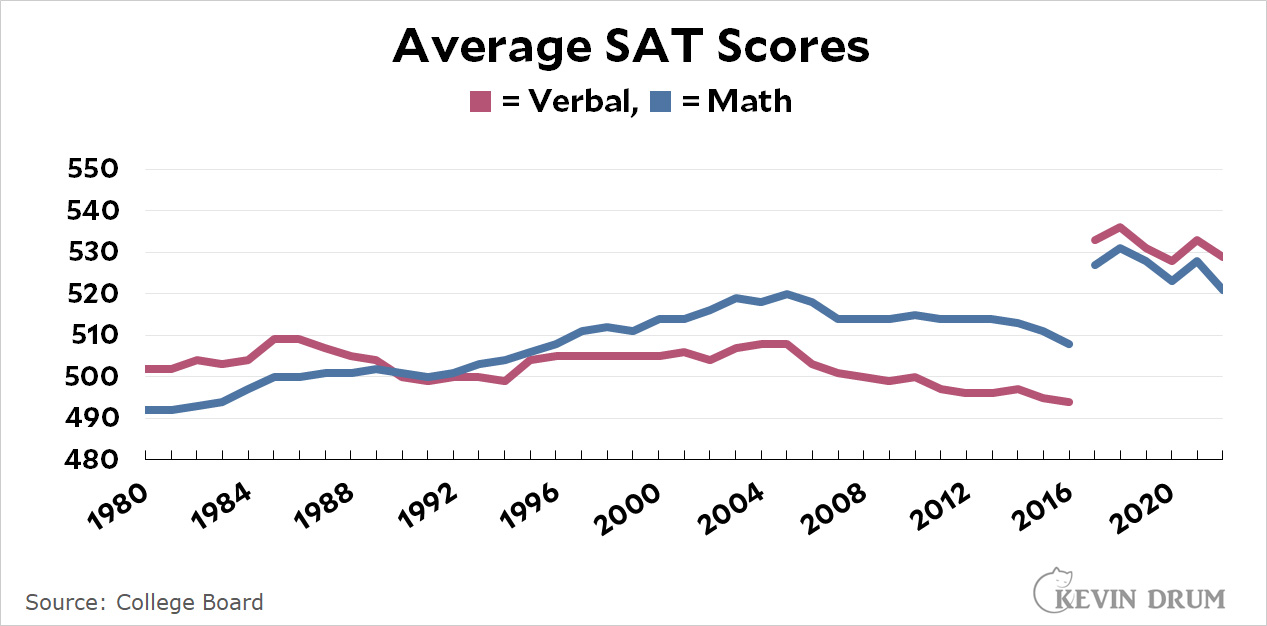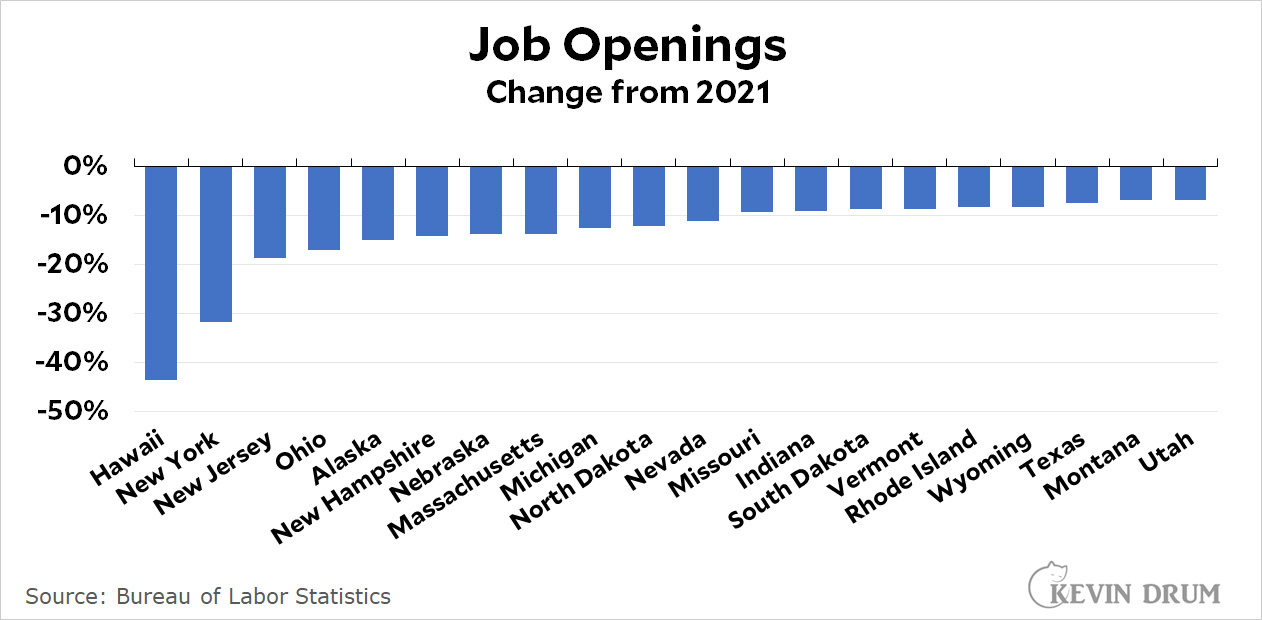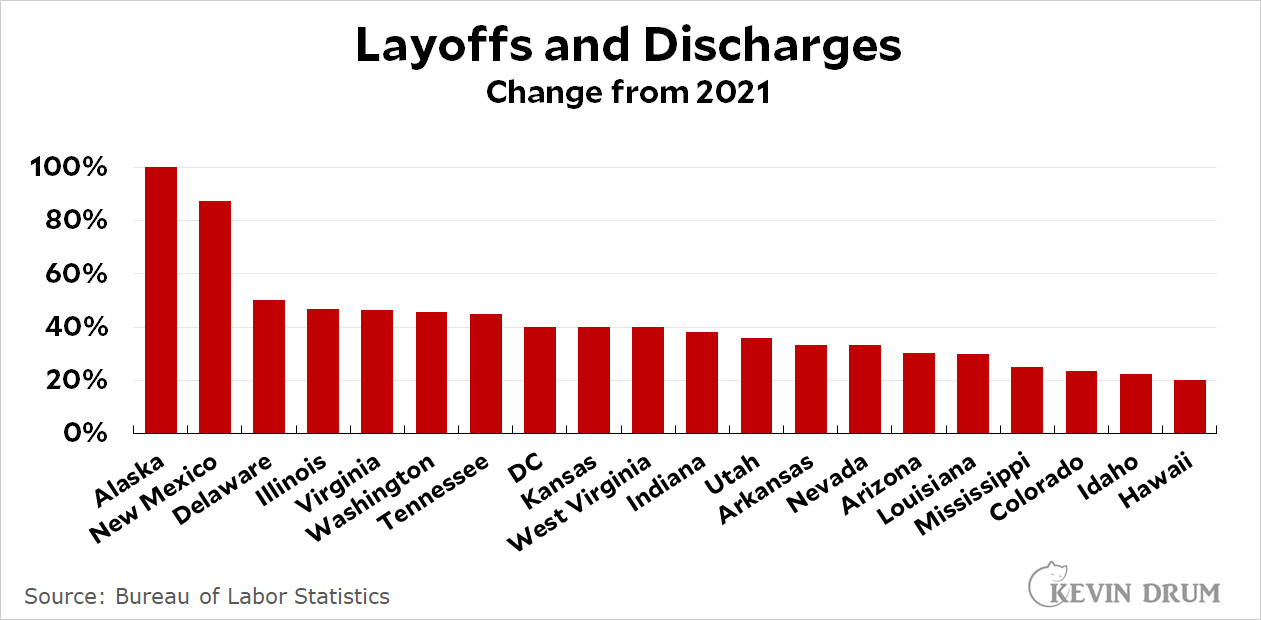Apparently Britain's National Health Service is having problems these days. What's the solution? More privatization? More accountability? More doctors from overseas?
I don't want to pretend that the NHS's problems aren't complex. But at least one of them is pretty simple. Consider this chart from a couple of years ago:
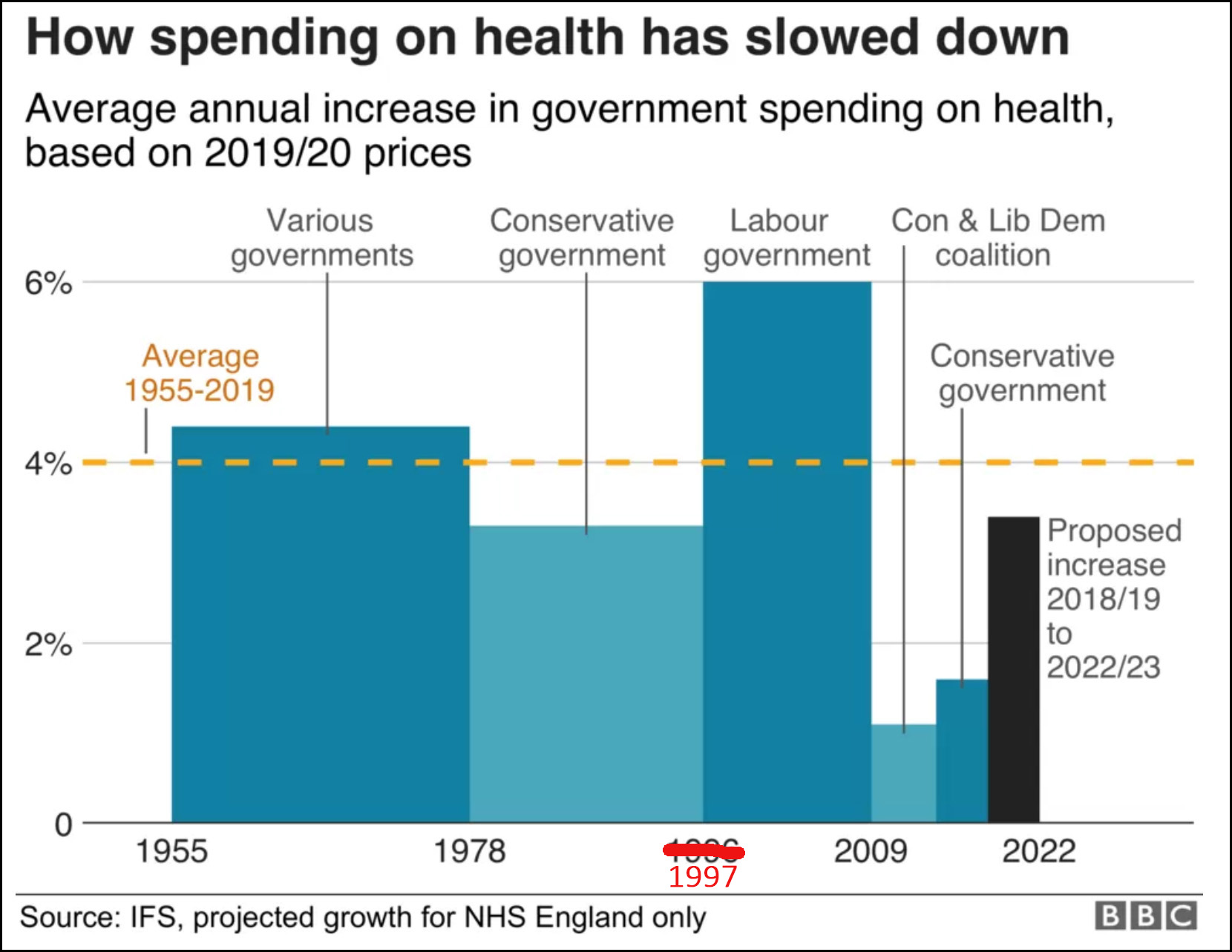 This is plain enough. In 1997 Tony Blair and his Labour government took power and increased NHS funding growth to 6% per year (in real terms). In 2009, Labour lost power and Conservatives slashed NHS funding, approving real growth in its budget that averaged about 1.5% per year.
This is plain enough. In 1997 Tony Blair and his Labour government took power and increased NHS funding growth to 6% per year (in real terms). In 2009, Labour lost power and Conservatives slashed NHS funding, approving real growth in its budget that averaged about 1.5% per year.
Remember those dates: 1997 and 2009. Now let's look at a chart showing public satisfaction with the NHS:
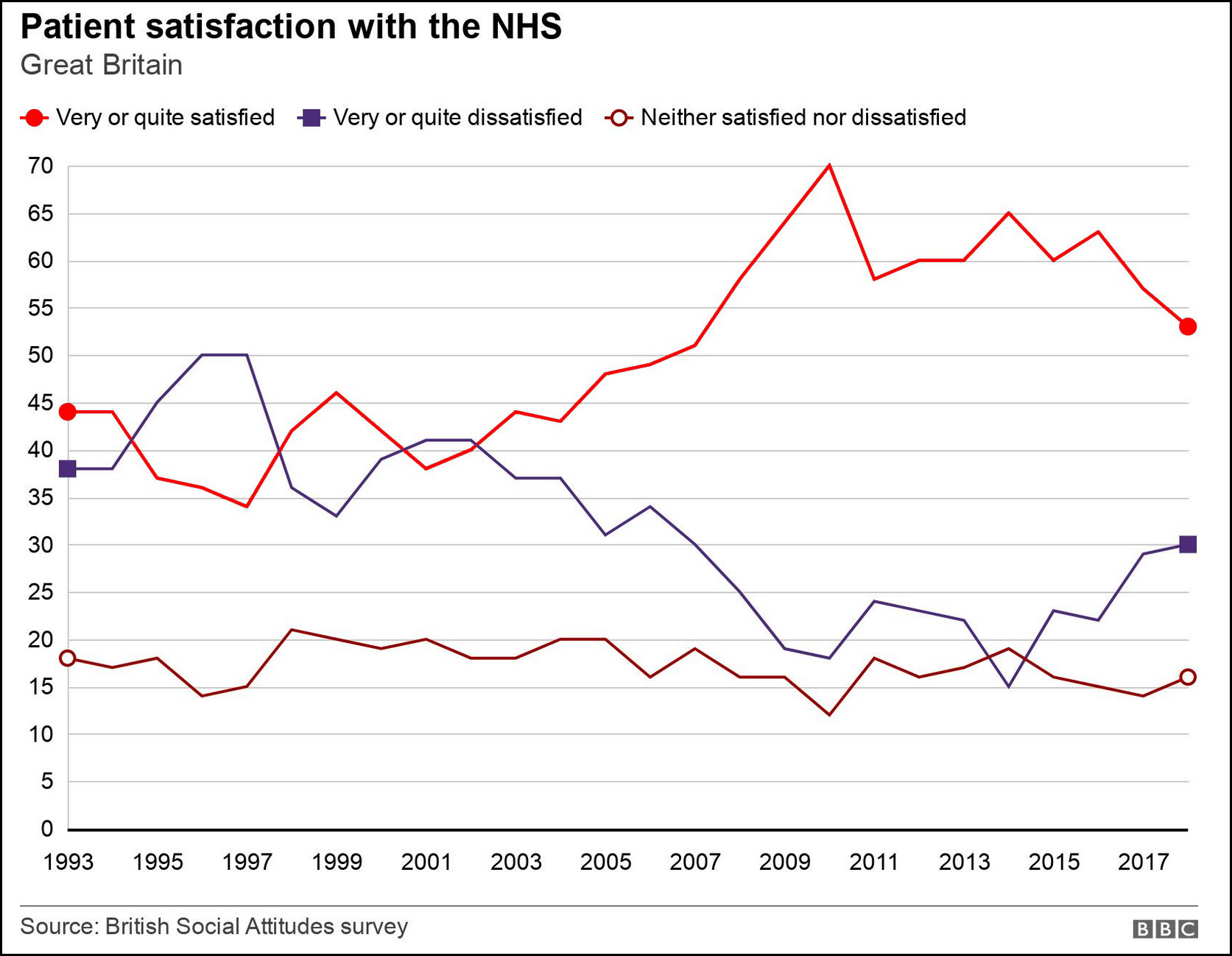 The bright red line indicates patients who are very or quite satisfied with the NHS. This number started to go up around 1997, peaked around 2010, and has been going down ever since then.
The bright red line indicates patients who are very or quite satisfied with the NHS. This number started to go up around 1997, peaked around 2010, and has been going down ever since then.
(It's gone down even further since 2018, but that's largely due to COVID-19 and a change in survey methodology. It's unfair to include that, so this chart stops at 2018.)
This shows a pretty simple picture: When Conservatives slashed spending growth from 6% to ~1.5%, service levels dropped and patient satisfaction went down. In absolute terms, that growth rate of 1.5% from 2009-18 compares to a real growth rate of about 3% for Medicare in the US. By any measure, the NHS is pretty starved for funds.
You can usually get away with this for a while, but eventually it all catches up to you. In Britain, "eventually" is now.
Any other questions?

